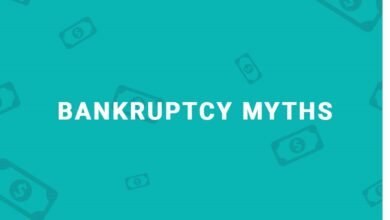Negotiating Settlements for Bankruptcy and Creditors

In today’s complex financial landscape, negotiating settlements for bankruptcy and creditors has become a crucial aspect of the debt resolution process. As individuals and businesses navigate the challenging terrain of insolvency, understanding the art of negotiation becomes paramount. This article aims to guide you through the intricate world of bankruptcy settlements, providing insights, strategies, and real-life examples to empower you in your financial journey.
Understanding Bankruptcy
Before delving into negotiations, it’s essential to grasp the basics of bankruptcy. There are different types, including Chapter 7 and Chapter 13, each with its unique implications. Chapter 7 involves liquidation, while Chapter 13 allows for a restructured repayment plan. Understanding these differences is key to formulating a successful negotiation strategy.
Importance of Settlements
Negotiating settlements is a game-changer for both debtors and creditors. For debtors, it offers an opportunity to reduce the total debt burden and avoid complete liquidation. Creditors, on the other hand, benefit from a guaranteed portion of the debt, minimizing potential losses.
Preparing for Negotiations
Successful negotiations start with thorough preparation. Assess your financial standing, including assets, liabilities, and income. Develop a realistic budget and identify the maximum amount you can offer to settle debts. This groundwork forms the foundation for effective negotiations.
Communication Strategies
Clear and transparent communication is vital during negotiations. Establishing an open line of communication with creditors fosters understanding and increases the likelihood of reaching a mutually beneficial agreement. Be honest about your financial situation and explore options for repayment.
Legal Aspects
Navigating the legal landscape of bankruptcy negotiations requires careful consideration. Consulting with legal professionals specializing in bankruptcy law ensures that negotiations adhere to legal frameworks. Their expertise can also help in crafting agreements that stand up in court, providing a more secure resolution.
Read More: Bankruptcy vs. Debt Settlement: Pros and Cons
Factors Affecting Settlements
Negotiation outcomes are influenced by various factors, including the debtor’s financial situation, the type of debt, and creditor policies. Examining real-life case studies can offer valuable insights into successful negotiation strategies and provide a roadmap for your negotiations.
Navigating Debt Repayment
While negotiations are underway, it’s crucial to develop a debt repayment plan that aligns with your financial capabilities. Striking a balance between meeting your financial obligations and satisfying creditors is essential for a successful resolution.
Common Challenges
Negotiations are rarely without challenges. From initial resistance to unforeseen obstacles, debtors may face various hurdles. Identifying and addressing these challenges head-on is crucial for a smooth negotiation process.
Success Stories
Drawing inspiration from those who have successfully negotiated settlements can provide hope and valuable lessons. By examining the journeys of others, you can glean insights into effective negotiation strategies and learn from their triumphs.
Future Financial Planning
Securing a settlement is just the beginning. Post-settlement financial planning is vital for rebuilding credit and ensuring long-term financial stability. This section provides actionable steps for planning your financial future after settling.
Ethical Considerations
Navigating bankruptcy negotiations requires not only legal acumen but also ethical considerations. Striking a balance between fulfilling legal obligations and acting ethically ensures a fair and just resolution for all parties involved.
Expert Advice
Insights from financial experts and legal professionals can be invaluable during negotiations. This section offers tips and guidance from those with experience in navigating the complexities of bankruptcy settlements.
The Human Aspect
It’s essential to recognize the emotional toll that bankruptcy negotiations can take. This section explores strategies for maintaining mental well-being throughout the process and emphasizes the importance of seeking support.
Read More: Managing Medical Debt: Strategies for Relief
Conclusion
In conclusion, negotiating settlements for bankruptcy and creditors is a challenging yet essential aspect of the debt resolution journey. By understanding the intricacies of bankruptcy, preparing thoroughly, and adopting effective communication and negotiation strategies, individuals and businesses can navigate this complex terrain successfully. Remember, bankruptcy is not the end—it’s a new beginning.
FAQs(Negotiating Settlements for Bankruptcy and Creditors)
Can anyone negotiate settlements for bankruptcy, or is professional assistance necessary?
While individuals can negotiate settlements independently, seeking professional advice can enhance the negotiation process and ensure legal compliance.
How long does the negotiation process typically take?
The duration varies, but it often depends on factors such as the complexity of the case and the willingness of creditors to negotiate.
Are all debts eligible for settlement negotiations in bankruptcy?
Not all debts are eligible, and some creditors may be more willing to negotiate than others. It’s essential to assess each debt individually.
What happens if negotiations fail to settle?
If negotiations fail, alternative options such as filing for bankruptcy under Chapter 7 or Chapter 13 may need to be considered.
How can individuals rebuild their credit after settling bankruptcy?
Rebuilding credit post-settlement involves careful financial planning, responsible credit use, and adherence to the terms of the settlement agreement.












One Comment